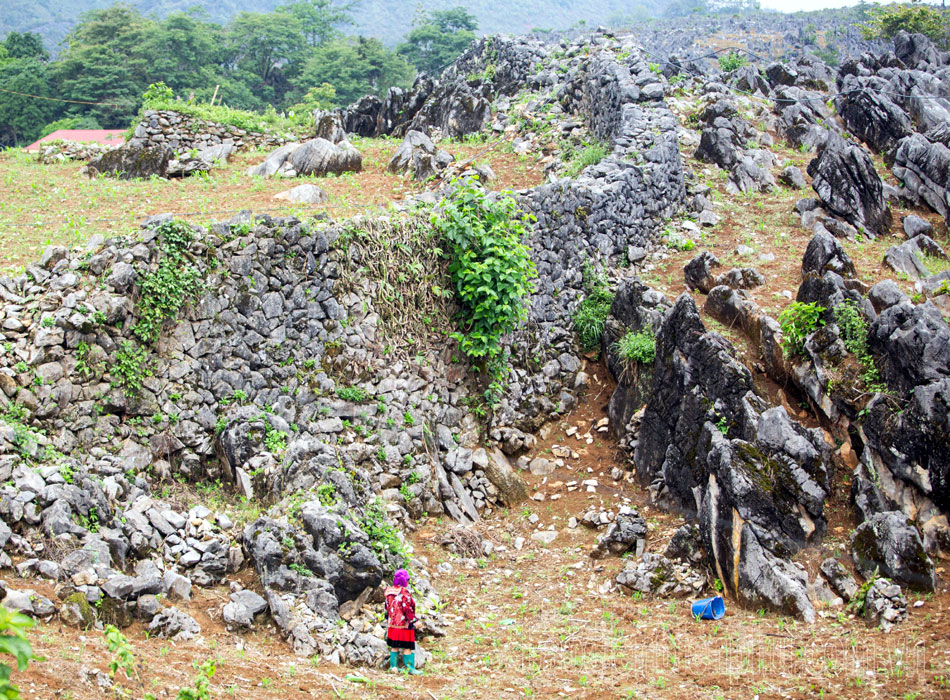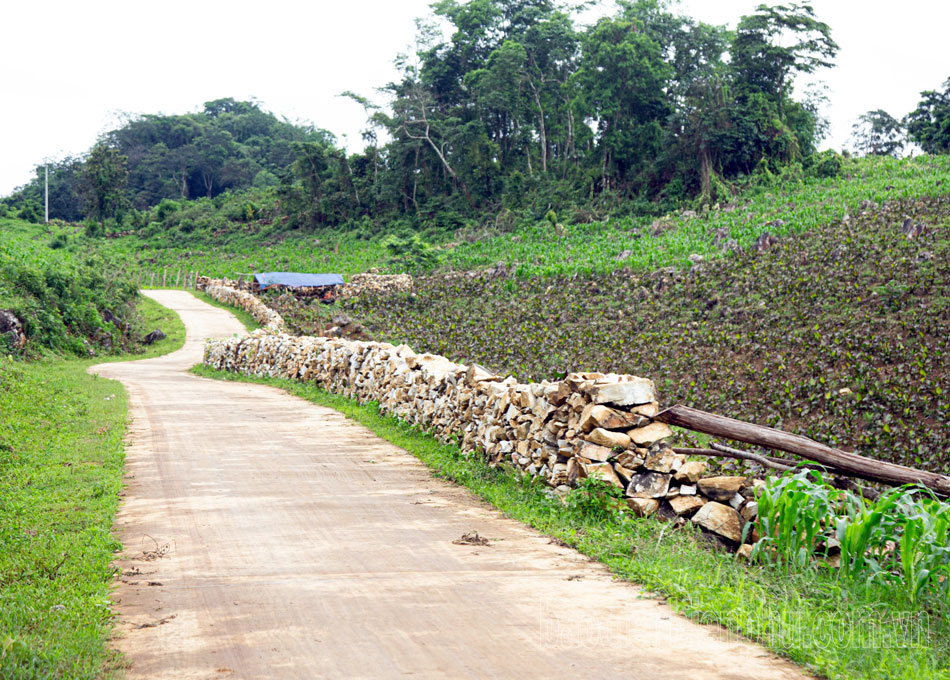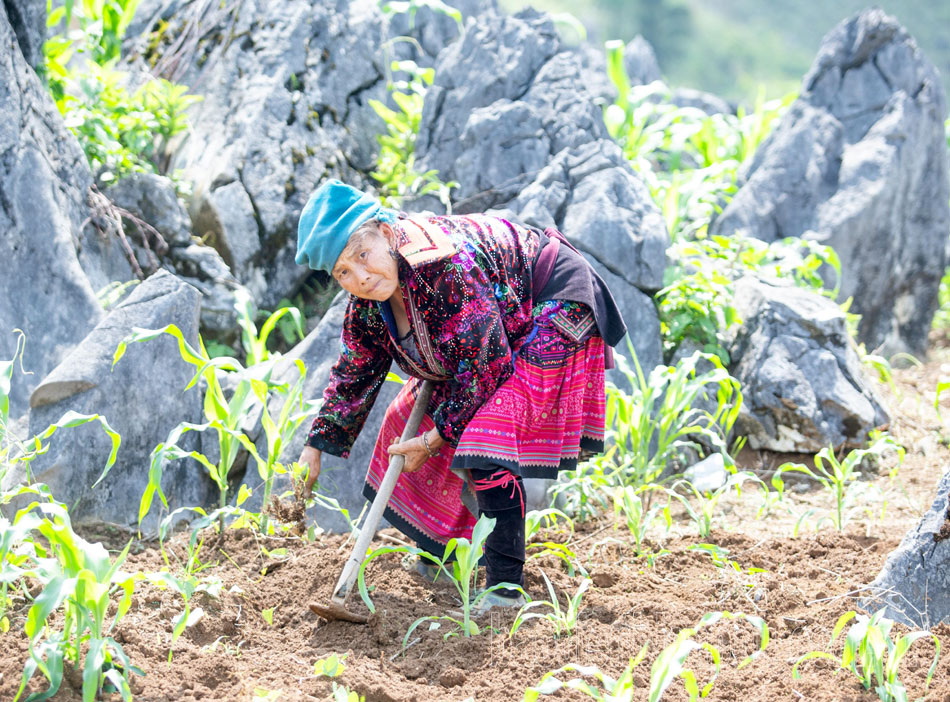The H’Mong ethnic group, residing in the northern mountainous province of Dien Bien, comprises over 30 percent of the province’s population and typically lives in high mountain villages. Throughout their long history of settlement and development, the H’Mong have preserved many unique cultural traits. Their villages, particularly in Tua Chua and Muong Cha, are easily identifiable by the distinctive stone fences that encircle their homes and fields. Constructed without the use of cement or binding agents, these stone fences are meticulously and skillfully built, standing tall and sturdy.

Vang Long Citadel in Ta Phin Commune, Tua Chua District in Dien Bien Province is an ancient structure that has stood the test of time.
Building stone fences has been a tradition since the early days of settlement and is closely tied to the daily lives of the H’Mong people. Living in mountainous areas abundant with stones, they initially began by neatly stacking stones in garden corners to clear land for farming. Over time, they discovered that using stones of various shapes and sizes to create fences around their homes provided protection against intruders and wild animals. This practice spread among the villages, leading to the distinctive stone fence architecture now characteristic of H’Mong communities.
Typically, these stone fences are about one metre wide and nearly two metres high, with a wider base that gradually tapers towards the top. Constructing a stone fence requires considerable effort and time, and the ease of construction depends on the geographic location. The H’Mong people usually use locally available stones, breaking larger rocks into smaller, sharp pieces of various sizes. When stones are insufficient, they use hammers and crowbars to break rocks on the mountain and transport them to the construction site.

The stone fence, stretching hundreds of metres, is built by the H’Mong people to protect their crops, showcasing a unique characteristic of the H’Mong communities in the northwest of Viet Nam.
Most H’Mong men are skilled in building stone fences, having been involved in farming and protecting crops from a young age. They start by collecting and stacking stones to create barriers around fields. However, mastering the art of assembling sharp stones into a complete, evenly aligned, and durable fence is no easy feat. It requires both craftsmanship and skill.

Most H’Mong people are familiar with the appearance of rocks in their crop fields.
In H’Mong villages, stone fences stretch across valleys, encircle cornfields, and surround homes, creating a stunning architectural landscape. These fences reflect not only a traditional cultural heritage refined over generations but also the diligence, skill, and creativity of the H’Mong people in the face of adversity.
By Tran Nham